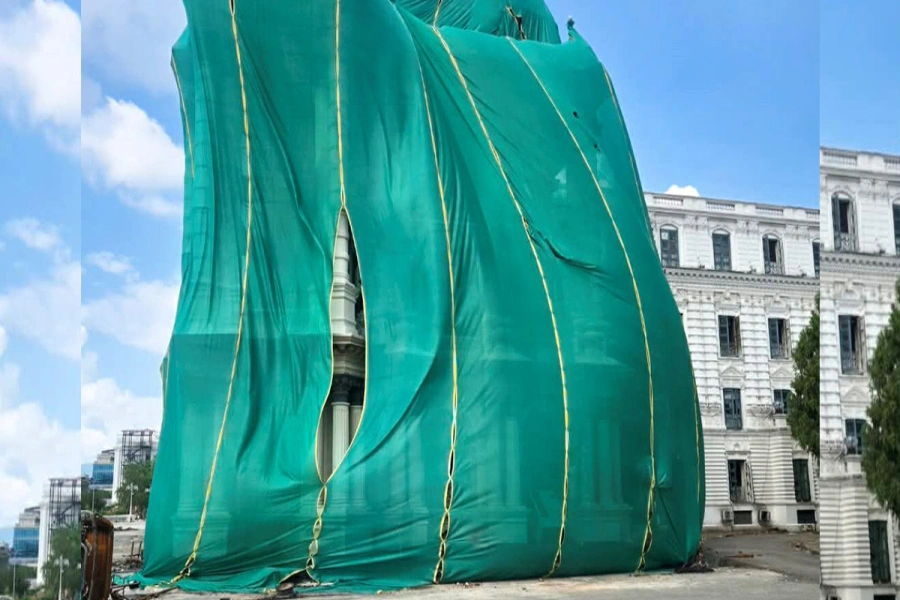KATHMANDU, Aug 30: With the government tabling the controversial Media Council Bill in parliament on Thursday, the onus now lies with the parliamentarians whether to ensure press freedom by accommodating the concerns raised by the media fraternity in the new legislation.
The National Assembly is scheduled Friday to endorse a proposal from Minister for Communication and Information Technology Gokul Baskota, calling for lawmakers' amendments to the bill within 72 hours. Members of the upper house can register joint or separate amendment proposals, if any, within the given deadline, in line with parliamentary regulations.
“We have submitted a draft to both ruling and opposition party lawmakers in the National Assembly, suggesting amendments. We are fully hopeful of our demands getting addressed as the lawmakers have assured us of revising the bill to that end,” Chairperson of the Federation of Nepali Journalists (FNJ) Govinda Acharya told Republica. The media council proposed under the bill will replace the existing Nepal Press Council.
Journalists have demanded amendments to the bill to guarantee the independence and autonomy of the council, promote self-regulation, revise the appointments criteria and procedures for the head and members of the council, and remove the provision of penalties, among other things.
Sexploration Season 2 Episode 6: The Onus of Contraception

Following protests from the media fraternity, including FNJ, and the main opposition party Nepali Congress (NC), the government had put the bill on hold for four months. It was registered at the parliament secretariat in April. But the government decided to table the bill following an understanding with representatives from the umbrella organization of journalists and the main opposition party to rework the contentious provisions.
The FNJ had withdrawn its months-long protest against the bill after leaders of the ruling Nepal Communist Party (NCP) gave a written commitment to address the journalists' concerns through parliamentary processes.
In the three-point commitment letter to the FNJ, NCP Chief Whip in the National Assembly Khimlal Bhattarai promised to address journalists' concerns over provisions regarding penalties and the autonomy of the media council, among other issues.
“We are already in continuous touch with FNJ representatives and will have further consultations with journalists before registering our amendments to the bill so that their demands are addressed,” said Bhattarai.
Journalists and other stakeholders were agitated over provisions in the bill to fine them up to Rs 1 million if they are found violating the 'media code of ethics' and to form a state-controlled media watchdog body with semi-judicial powers. They also had other objections. Stakeholders expressed serious concern over the proposed structure of the council, stating that it gives sole authority to the government to appoint and remove its head and members and also issue directions on its workings.
While tabling the bill in the upper house on Thursday, Baskota gave assurances of revising the bill, ensuring the autonomy of the media council and softening the penalties for journalists. “The council to be formed under this law will be autonomous. We are also open to revising the provisions related to penalties because this responsibility could be given to the courts as well,” he said. “There will be enough consultations with the FNJ during deliberations on the bill.”
Nepali Congress (NC) lawmaker Radheshyam Adhikari withdrew his notice on protest against the bill following the assurances from the minister. “We have doubts over the independence and autonomy of the media council and the withdrawal of hefty fines on journalists,” said Adhikari on Thursday.
Back in April, the NC had registered a notice of protest against the bill in parliament, demanding its withdrawal.




























-1772436151.webp)










